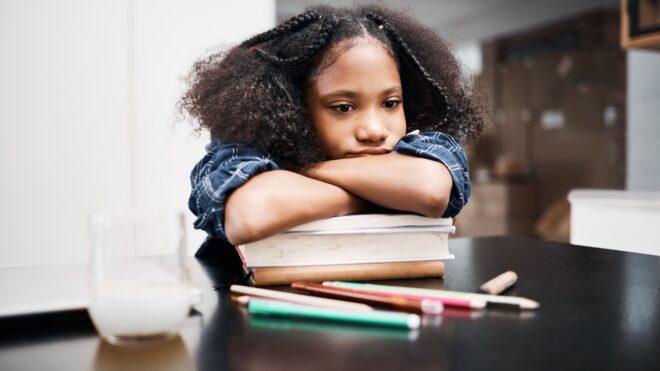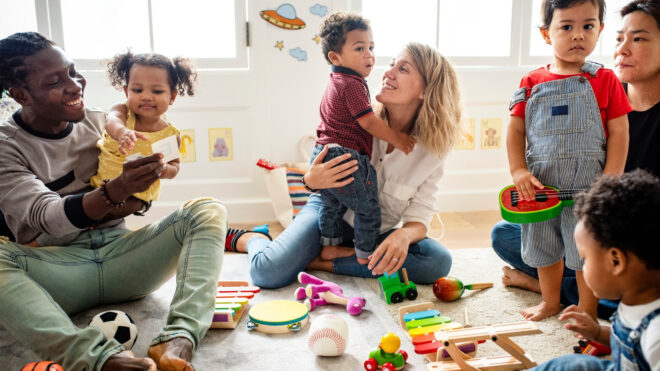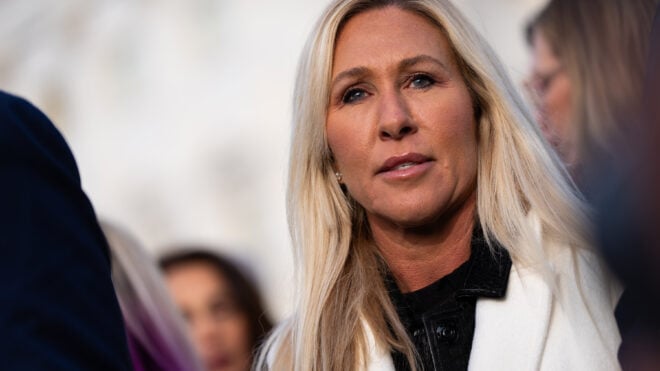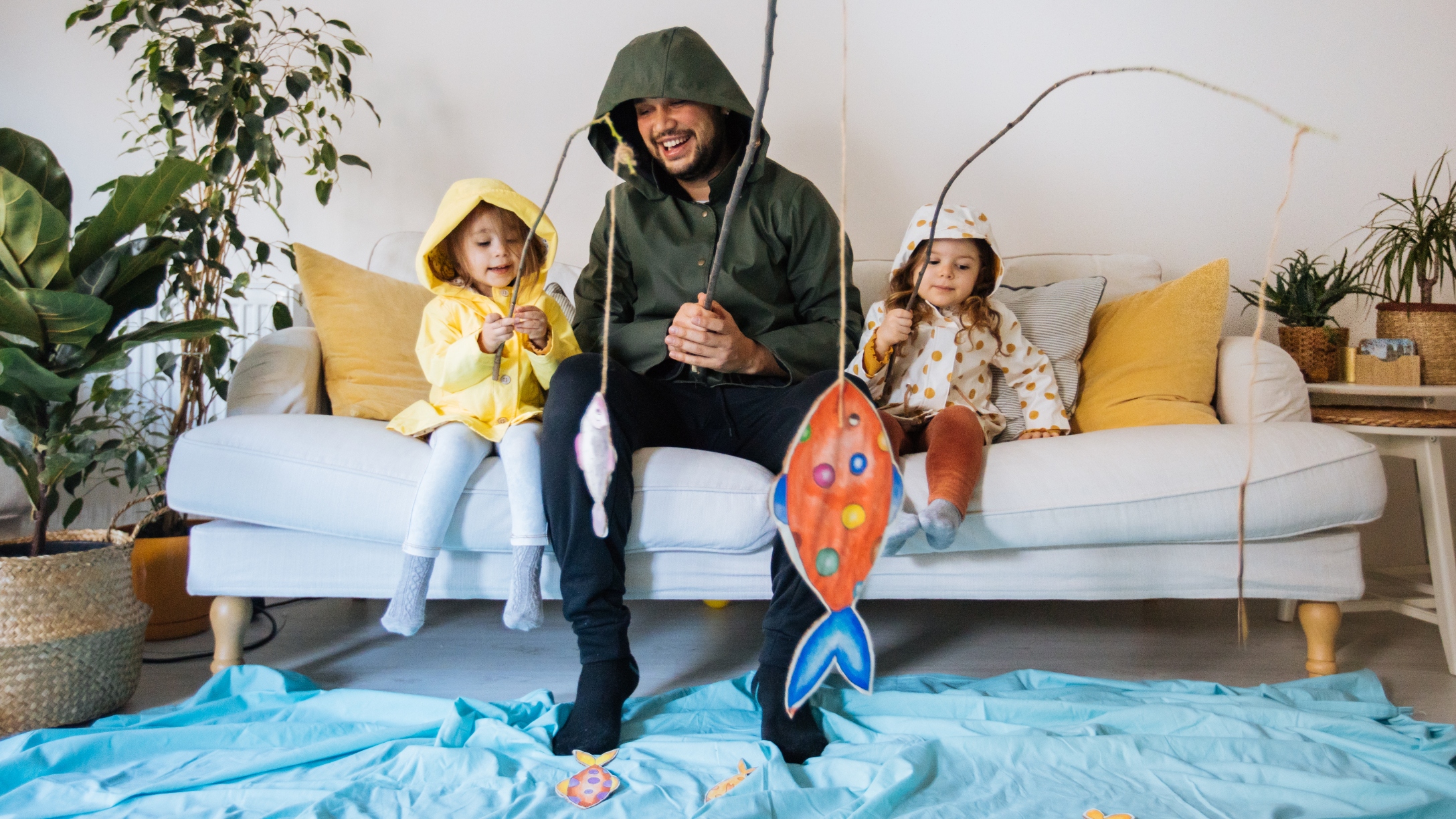
My mother is nearly 70 years old, and she remains the undefeated champion of air hockey in our family. She’s a petite woman, pocket-sized even, but she grows exponentially in confidence and joy when she plays with her children and grandchildren. Now that I have kids, I do my best to play with them even if it means pushing through exhaustion, irritability, and feeling like I should be doing something productive.
But playtime is productive. Intergenerational play can contribute to emotional benefits for you and developmental benefits for your child. Whether structured and cerebral or improvised and absurd, playtime is a wellspring of happiness and emotional connectivity for the whole family.
What keeps us from playing with our children more often? For some parents, it’s the sheer fatigue of everyday life. These days, it’s become especially challenging to find energy and balance to be present enough to play with our children.
Another reason why parents may not spend much time playing with their children is because the desire to control play is greater than the experience being shared. Continuing to assume the authoritative role of the parent even in play overshadows what could be joyful moments spent together making memories. That’s why the key to creating more joyful play is to let go of the need to control it. The aim is to strike a balance between making sure play is safe while allowing children to lead and express themselves in a healthy and positive way.
Play is good for them.
Parents may see play as a waste of time — time that could be better spent working, cooking, cleaning, placing an online order for groceries. But it’s important to remember that play is integral to child development, offering children both physical and cognitive benefits.
Through play, young children can develop motor skills, learning to coordinate their movements while throwing, catching, jumping, and spinning around until they’re dizzy. Plus, physical activity contributes to a healthy lifestyle for kids of all ages.
Games like puzzles, sorting, and counting boost intelligence. Play can enhance language skills and reasoning, too. But being a good human is equally as important, if not more important, than being smart. Playing with children can help them develop their social skills, like their sense of fairness, and their emotional intelligence.
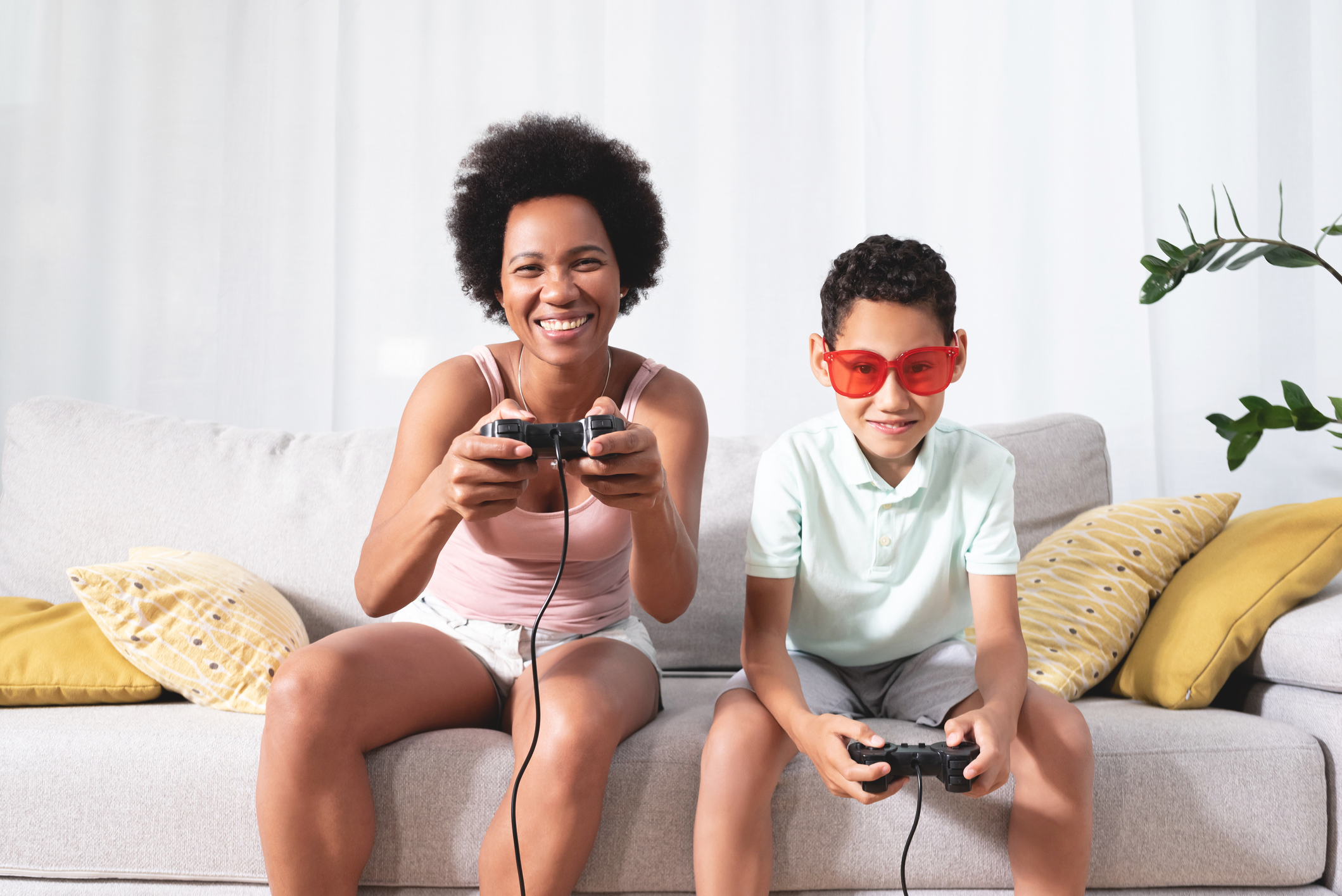
So often, young children want to play with their parents, but teenagers are embarrassed by them. Puberty is a time of self-discovery and can sometimes create a chasm between parent and child. Playing with your teenager, whether it’s on the basketball court or on a chessboard, can be a great way to connect without being obtrusive.
And play is good for you, too.
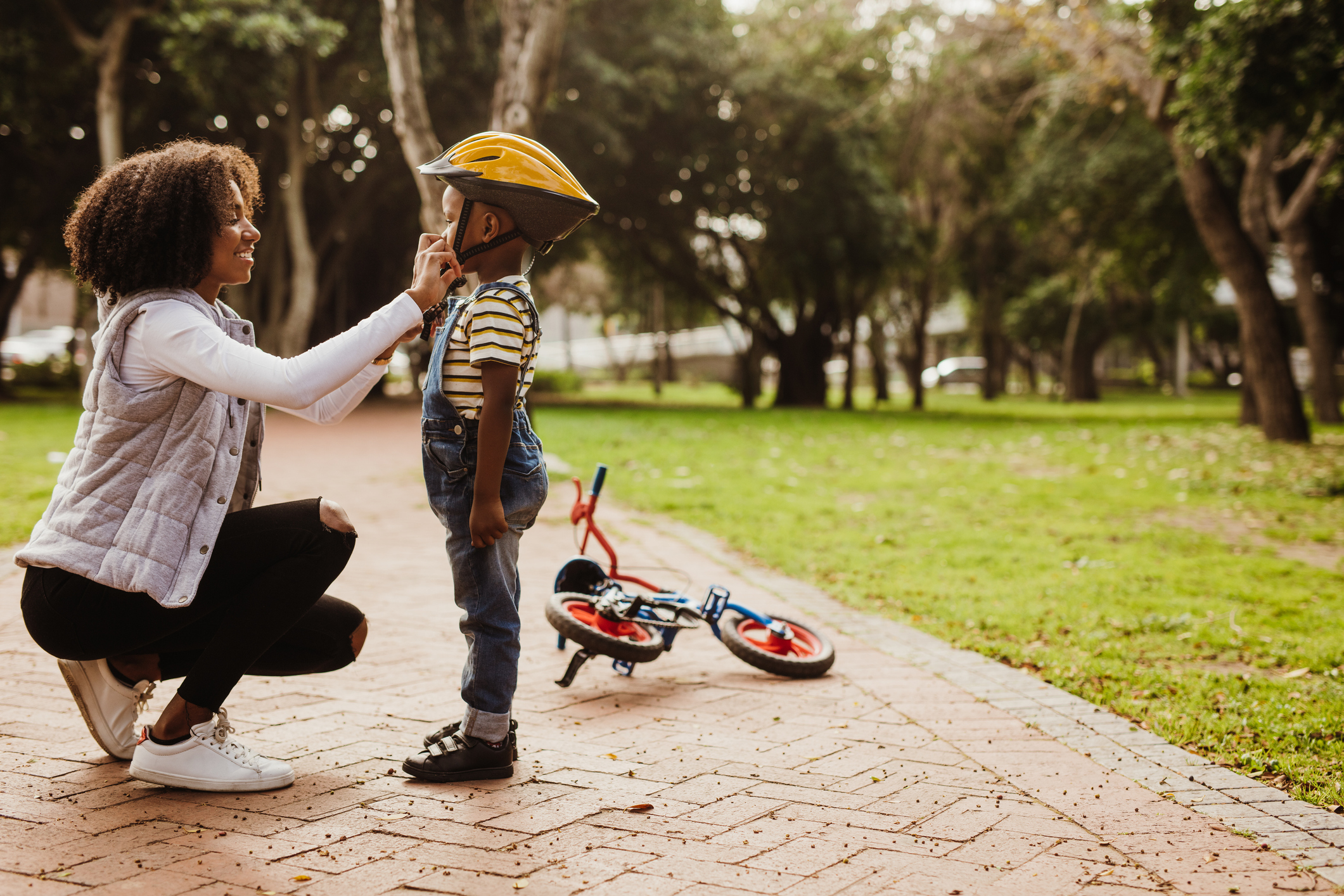
Let’s face it. Most children don’t have the opportunity to play outside with a bunch of friends like many parents had growing up. Cooped up at home, it now becomes the parent’s job to be their child’s playmate.

But here’s the thing: Playtime is good for you.
That’s right. Playing with your child sparks a chemical reaction in your body, releasing the love hormone, oxytocin. Why is that a good thing? Well, oxytocin can be beneficial in combating "depression, anxiety, and intestinal problems." Plus, physical play like running around playing tag or Simon Says gets your body moving, and who doesn’t need more of that right now? For many parents, everyday life has become sedentary, and opportunities for physical activity are likely welcome.
Then there is the nostalgia of teaching children games you played as a child. If you’re lucky, your child will appreciate the simplicity of games you played back in the day, like Double Dutch or Mother May I.
Just chill out.
The other day, while standing in line at the supermarket, my daughter held both my hands and asked me to play Ring Around the Rosie. And I did. We had been standing in line for so long, and I was over it — I was pretty much over everything. So we whispered the lyrics, and instead of falling to the ground, we just squatted. Before I knew it, it was our turn at the cashier, and my little girl was giddy. Embracing impromptu play, especially when boredom threatens to envelop the family, can make the dullest situations charming and fun.
Plus, play can take on so many different forms. If your kid is into makeup and you let them practice on you, that’s a form of play. If you’re all set for your at-home yoga session and your toddler crawls over you and under you while you hold your poses, that’s a form of play, too. So just chill out and go with it. Say yes to playing with your child more often. Say yes to forming a deeper bond, say yes to creating happy memories together, say yes to a healthier lifestyle by simply saying, “Yes, let’s play.”


